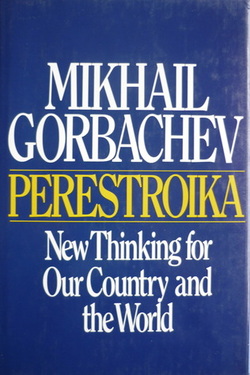Perestoika and Glasnost
Glasnost, 1986
- Term was interpreted in the west as "openness"
- Policy shocked both his people and the west
- For the first time since the Tsars a leader encouraged open debate about the country
- Less censorship
- Change of view of Soviet history
- Andrei Sakharov was freed from exile (developed the hydrogen bomb in Russia)
- Stalin was denounced
- Gorbachev announced socialism still hadn't arrived
Perestroika, 1987
- Gorbachev published a book with this title which means "restructuring"
- Denouncing Stalin
- Notion of one ideology - one party
- Admitted that Hungary 1956 and Czechoslovakia, 1968 were mistakes
- That he wanted to return to detente
- Wanted reform
- Anti-alcohol campaign - cost state in revenue
- Investment in machinery and tool industry with little return
- Glasnost backfired in that people began hoarding common goods
- Deficit grew annually
- He continued the war in Afghanistan too long
- His high ranking officials were based on loyalty rather than reform mindedness
summary
Gorbachev published a book on changing the ways of the government in the USSR, and this was known as Perestroika. He continued this ideal of openness in his movement called Glasnost. Glasnost was a movement where people would be taught what actually happened during the war.

